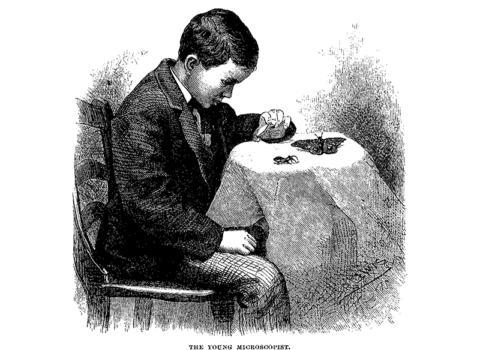What is the purpose of the North Atlantic Treaty Organization these days? Since the end of the Cold War, which was brought about more than 35 years ago by the reformist policies of Russian premier Mikhail Gorbachev and not by the colorful rhetoric of President Ronald Reagan, this question has not yet been sufficiently debated in the United States. Before Vladimir Putin delivered his “preventive” attack against want-to-be NATO member Ukraine, the organization was in great health. It wasn’t facing any serious threats to its almost impervious, almost holy status as the “defender of Western democracy” and its supposedly peaceful values.
But then came an absurd outburst by Donald Trump that sowed panic in the corridors of power in Washington, in New York, and at NATO headquarters in Brussels. The so-called “populist” Republican candidate had issued yet another offhand remark, this time expressed to cheering onlookers in South Carolina, where he was preparing to crush his rival, Nikki Haley, a spokesperson for the vestiges of the internationalist leanings in the Republican Party of Ronald Reagan and George Bush, father and son. Trump was recounting a conversation, quite possibly an imaginary one, with the head of state of a NATO-member country who wanted to be reassured of the alliance’s guarantee that America would come to its rescue in the event of Russian aggression. To which Trump said he replied, “You didn’t pay, you’re delinquent […] No, I would not protect you. In fact, I would encourage [the Russians] to do whatever the hell they want.”
Whatever his real intentions may have been at the time of this alleged conversation, Trump is a genius at generating free publicity, and the comment made his cash register ring again. Even so, let us not minimize his political message: “You have to pay your bills. Why wouldn’t rich foreigners be obligated to do the same?”
It may be hard to believe that Trump possesses the sophistication or empathy required to understand the disaffection Americans feel toward the foreign policies carried out in their name. For him, everything is a commercial transaction: credit or debit. On the other hand, Trump has heated instincts that resonate with electors tired of seemingly endless wars, both direct and by proxy. Deprived since 1991 of the Communist Soviet specter—and therefore of the imminent danger of nuclear annihilation—the architects of American interventionist policies (for the moment, pro-Ukraine and pro-Israel) are increasingly reliant on the argument that America’s intrinsic goodness compels us to defend “freedom” at all times, anywhere and everywhere.
This sentiment harkens back to the famous sermon Puritan John Winthrop gave his Massachusetts Bay Colony brethren in 1630, urging them to appear to the world as “a city upon a hill,” fully aware, he said, that “the eyes of all people are upon us.” Delivered “humbly,” Winthrop’s words are now deemed extremely arrogant, and have survived to this day mainly through American “exceptionalism,” a concept that posits the country as the supreme guarantor of morality and holiness.“[God] shall make us a praise and glory that men shall say of succeeding plantations, ‘may the Lord make it like that of New England.’” This was more or less what George W. Bush wanted for Iraq—a sort of Massachusetts-upon-Euphrates.
These days the disillusion with messianic military campaigns continues to deepen, and it’s hard to forget the rampant hypocrisy and bad faith of the Bush years. Restore Kuwait’s sovereignty after Saddam Hussain’s 1990s invasion? After ignoring Panama’s sovereignty by invading that country in 1989, America violated Iraq’s sovereignty in 2003 in total disregard of the United Nations and international law. Respect human rights and legal procedures? George W. made a mockery of these with his secret CIA prisons (“black sites”) and torture conducted in Iraq, Afghanistan, and elsewhere, including Guantanamo. All these wars were based on fabricated excuses or all-out lies: the drug trafficking of Panama’s Manuel Noriega; the massacre of babies pulled out of incubators in Kuwait; Saddam’s atomic bomb and chemical weapons; collusion between Osama bin Laden and the Taliban in the September 11 attacks on New York City and Washington, D.C.
As for NATO’s record, I’ve noticed that the Warsaw Pact forces never crossed the Fulda Gap in West Germany (a route by which Soviet tanks could push west), which was defended by Anglo-European forces. No nuclear missiles were exchanged either. Very good, even though, like George F. Kennan said in the 1950s, we might have preferred that NATO’s “purely military role would decline in importance as the curse of bipolarity fell from the continent.” But despite the fall of the Soviet Union in 1991, NATO became even more militarized, notably in 1999 with the bombing of Yugoslavia and the rescue of Kosovo Albanians suffering a “genocide” by the Serbs, who, incidentally, had not attacked a member of this supposedly defensive grand alliance.
The Russian elite, including Vladimir Putin, took note of the dead bodies and destroyed buildings in Belgrade. Ukraine, a potential NATO member, likely serves as an American spearhead for hawks like Nikki Haley and Joe Biden, who are wary of an independent, autocratic power in Moscow. Needless to say, the Russian dictator prefers Trump. Like the millions of Americans exhausted by the holy wars and moral dictates of a John Winthrop.



